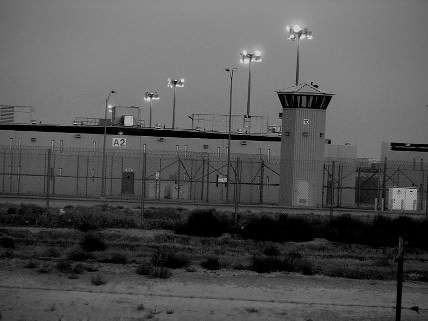Outsourcing Prison? Norway Asks Sweden To House Its Prisoners

Sweden, which recently made headlines for closing down four of its prisons in response to dropping incarceration rates, has been asked to house inmates from neighboring Norway.
Norway is suffering from an overcrowding problem: there are currently 1,200 people for whom jail space is needed. So rather than continue their current policy of releasing criminals, Norway's Justice Minister has asked to rent out some of Sweden's increasingly spare prison space.
From RT:
Norwegian Justice Minister Anders Anundsen announced on Monday evening that he had sent a request to his Swedish colleague, Beatrice Ask, to rent jail space, the state broadcaster NRK reports.
"We cannot live with the situation we have in this country now. We have long prison queues, and that is why we have contacted the Swedes to see if it is possible to lease prison places there," he told NRK.
Per Clareus, a spokesman for Beatrice Ask, told RT that the Swedish justice ministry was not yet ready to comment on the proposal.
Nordic countries' penal systems have long enjoyed an enivable reputation and for good reason: they offer more livable conditions for inmates and have lower recidivism rates than in the United States. While Norway's prison system has been touted as one of the world's most humane though, it still locks up a higher proportion of its population than does Sweden (71 per 100,000 versus 67 per 100,000, respectively, according to the latest figures from the International Centre for Prison Studies). By comparison, the United States' 716 inmates per 100,000 people is jaw-droppingly high.
Not only is Sweden's proportion of citizens in prison low - it's dropping. The country's incarceration rate has been steadily falling by roughly one percent per year since 2004 and from 2011 to 2012 it fell by a whopping six percent. Nils Öberg, the head of the country's prison and probation services, expects it to to continue falling.
When asked why Sweden has experienced these declines, Öberg said that there is not a clear answer. He hopes it is due, at least in part, to the system's strong focus on rehabilitation.
According to The Guardian, the sharp decline from 2011 to 2012 may be a result of drug policy reform:
One partial explanation for the sudden drop in admissions may be that Swedish courts have given more lenient sentences for drug offences following a ruling of the country's supreme court in 2011. According to Öberg, there were about 200 fewer people serving sentences for drug offences in Sweden last March than a year previously.
Norwegian Justice Minister Anders Anundsen admitted he was unsure whether there are legal avenues in place that would allow the country to essentially outsource its prison services. He pointed to a 2009 agreement between Belgium and the Netherlands that allows Belgium to rent space in Dutch prisons as a possible model.



Show Comments (12)